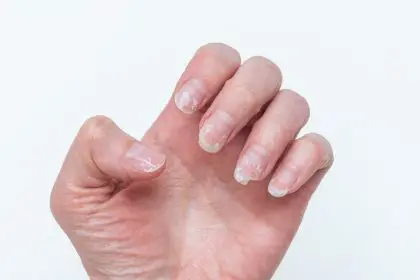Our bodies are intricately connected in ways we’re just beginning to fully understand. One of the most fascinating revelations in recent years is the link between gut health and skin conditions. While many people treat skin flare-ups with creams or medications, they often overlook a root cause that lies much deeper — the gut. Scientists, dermatologists and wellness experts are now finding evidence that when your skin is trying to tell you something, your gut may already be showing signs of distress.
Understanding the gut-skin relationship
It’s easy to think of the gut and skin as separate systems, but both are part of a larger network that keeps the body in balance. The gut houses trillions of bacteria — both good and bad — that play vital roles in digestion, nutrient absorption, immune function and even mood regulation. This ecosystem, known as the gut microbiome, requires stability for overall wellness.
When this microbiome is disrupted due to stress, poor diet, antibiotics or illness, the results can extend beyond bloating or indigestion. The skin, being the body’s largest organ, often shows signs of this imbalance through inflammation, acne, eczema, psoriasis and premature aging.
How the gut-skin axis works
At the center of this connection is what researchers call the gut-skin axis — the two-way communication between the digestive system and skin. When the gut becomes inflamed or develops increased permeability (sometimes called “leaky gut”), toxins and bacteria can enter the bloodstream, triggering systemic inflammation that often manifests on the skin.
Research has found several connections between gut health and common skin conditions:
- Acne can worsen with poor digestion and unbalanced gut bacteria
- Rosacea has been linked to an overgrowth of certain gut microbes
- Eczema and psoriasis often flare when the gut lining is compromised
- Hives or rashes can signal food sensitivities stemming from poor gut integrity
Not everyone’s gut reacts the same way. Two people with identical diets may have vastly different skin responses depending on the strength and diversity of their gut flora.
Warning signs your skin reflects gut imbalance
You may be treating skin issues on the surface while missing internal warning signs. Here are indicators your skin could be signaling gut trouble:
- Persistent breakouts despite using topical treatments
- Red, itchy patches that come and go
- Skin that looks dull or feels unusually dry
- Sudden sensitivity to products you once used comfortably
- Flare-ups triggered by specific foods
These symptoms aren’t just cosmetic concerns; they often signal that the body’s internal communication system is in distress.
Diet’s crucial role in gut-skin health
What you eat directly feeds your microbiome. Whole, fiber-rich foods nourish beneficial bacteria, while highly processed foods, excess sugar and refined oils can contribute to dysbiosis — the imbalance of gut flora.
To support both gut and skin health, nutrition experts recommend:
- Increasing prebiotic foods like garlic, onions, leeks and asparagus
- Eating fermented foods such as yogurt, kimchi, kefir and sauerkraut
- Drinking enough water to flush out toxins
- Cutting back on sugar and highly processed snacks
- Avoiding unnecessary antibiotics unless prescribed by a professional
Many patients report that dietary improvements lead to brighter, less reactive and more resilient skin.
The probiotic connection
A growing body of research supports the use of probiotics — either in supplement form or through fermented foods — to improve both gut and skin health. By restoring balance in the microbiome, probiotics may reduce inflammation, prevent harmful bacteria overgrowth and help regulate the immune response.
Some dermatologists now recommend probiotics as part of a holistic treatment plan for patients with chronic skin conditions. Though not a cure-all, they offer a promising approach focusing on long-term health rather than temporary symptom relief.
Beyond diet: Lifestyle factors
Stress doesn’t just affect the mind — it impacts gut function. Chronic stress can lead to inflammation, hormone imbalances and reduced microbial diversity, all of which affect the skin. Many people notice breakouts after stressful events or dry patches during periods of insufficient sleep.
Improving gut health means addressing key lifestyle factors:
- Prioritizing good sleep hygiene
- Practicing stress-reducing techniques like yoga, meditation or deep breathing
- Exercising regularly to support healthy digestion and circulation
When stress levels drop and sleep improves, the gut can heal — and skin often follows.
Medical conditions highlighting the connection
Several diagnoses further emphasize this gut-skin relationship:
- Celiac disease, a gut-related autoimmune disorder, can cause dermatitis herpetiformis, an itchy, blistering rash
- Inflammatory bowel disease is associated with several skin problems, including ulcers and lesions
- Small intestinal bacterial overgrowth has been linked to rosacea in multiple clinical studies
Medical professionals are increasingly treating these skin conditions with gut-centered approaches, offering more sustainable solutions than topical treatments alone.
Healing from the inside out
It can be frustrating to battle persistent skin issues, especially when nothing seems to work. But by turning attention inward, many find lasting relief. Rebalancing the gut isn’t a quick fix, but it often creates sustainable improvement.
Rather than covering up symptoms, this inside-out approach focuses on system-wide balance that begins in the gut and extends outward.
For those looking to build daily routines that benefit both gut and skin health, experts suggest:
- Starting the day with warm lemon water to stimulate digestion
- Incorporating fiber into every meal
- Avoiding unnecessary medications that may disrupt the microbiome
- Keeping a food journal to identify skin-related triggers
- Being patient while internal changes translate to external improvements
A holistic perspective
The relationship between gut health and skin conditions represents more than a trend — it reflects a shift toward viewing the body as an interconnected system. Skin issues often serve as the body’s way of signaling underlying imbalances.
Rather than just treating symptoms, the future of skin care lies in supporting the internal systems that maintain overall health. A balanced gut can mean fewer breakouts, calmer skin and improved confidence. For those struggling with persistent skin conditions, addressing gut health may provide the missing piece of the puzzle.
This story was created using AI technology.













